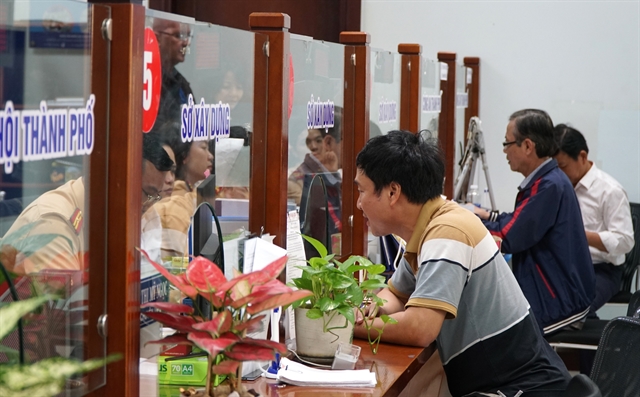 Economy
Economy

 |
| Party General Secretary Tô Lâm. VNA/VNS Photo |
“The private sector must be the pioneering force in the new era, successfully implementing the industrialisation and modernisation of the economy, enhancing national competitiveness, demonstrating social responsibility, improving people’s lives, contributing to a civilised and modern society, and building a dynamic, internationally integrated Việt Nam.”
This message from Việt Nam Communist Party General Secretary Tô Lâm in his recent article Developing the Private Economic Sector – A Lever for a Prosperous Việt Nam marks a turning point in recognising the sector’s vital role. It also reflects an aspiration for groundbreaking growth in what is today the country’s most dynamic economic engine.
Numbers speak louder than words
Việt Nam’s history has long recorded the contributions of the private sector, from merchant families to individual business households, limited liability companies, joint stock companies, and private enterprises. Since the launch of the Đổi mới (Renewal) period, and with the Party and State recognising the sector’s role in a multi-sectoral economy, it has developed rapidly—becoming one of the key drivers of national economic growth.
Following the 10th National Party Congress in 2006, when the private sector was officially encouraged to grow without size restrictions, its contributions to socioeconomic development and global integration surged. Initially a supporting player reliant on State-owned and foreign direct investment (FDI) enterprises, the private sector has since emerged as a central pillar of growth—particularly after the issuance of Politburo Resolution 09 in 2011 and Party Central Committee Resolution 10 in 2017 on private sector development.
Since 2010, the legal and policy framework supporting the private sector has been continuously improved. Article 51 of the 2013 Constitution affirms Việt Nam’s socialist-oriented market economy is composed of multiple forms of ownership, with the State economy playing a leading role, but all economic sectors considered essential, equal, cooperative, and competitive under the law. The State encourages and protects investment, production, and lawful business activities by all individuals and organisations.
According to Phan Đức Hiếu, permanent member of the National Assembly’s Committee for Economic and Financial Affairs, this legal framework has been strengthened through a series of key laws, including the Law on Private Enterprises and the Law on Companies (1990), the Enterprise Law (1999, 2004, 2014, and 2020), and the Investment Law (2004, 2014 and 2020). Other supporting laws include those on competition, public-private partnerships, bidding, and support for small- and medium-sized enterprises.
 |
| A garment production line at Maxport Vietnam Co. Ltd. VNA/VNS Photo Trần Việt |
These legal instruments have created a unified framework for business operations across all ownership types, aligning more closely with international standards and practices.
The private sector now competes freely and is entitled to equal treatment under the law, alongside State-owned and FDI enterprises. Discrimination in resource access and State support has been gradually reduced, while conditions for private investment have improved through reforms in tax policy, technology adoption, and administrative procedures.
The sector’s scale speaks for itself: nearly one million registered enterprises, five million household businesses, contributions of 51 per cent of GDP, over 30 per cent of the State budget, 40 million jobs (or 82 per cent of the national workforce), and nearly 60 per cent of total social investment capital. These numbers underline its position as a leading pillar of the national economy.
Persistent challenges remain
Despite these gains, Party Chief Lâm has acknowledged that the private sector still faces persistent obstacles that hinder its breakthrough potential.
At a recent meeting with the Party Central Committee’s Commission for Policies and Strategies, he emphasised the need to change long-standing perceptions that have treated private enterprises as merely supplementary to the State and FDI sectors. This bias continues to influence both policy frameworks and day-to-day interactions with businesses.
At the same time, the private sector also faces internal limitations. These include modest firm sizes, limited competitiveness, a shortage of leading enterprises in key industries, and weak linkages within the sector and across the broader economy. Notably, many of the five million household businesses remain reluctant to formalise due to regulatory concerns and procedural burdens.
There are also issues of business ethics and compliance. Some entrepreneurs have prioritised personal gain over social responsibility or legal obligations, eroding public trust and tarnishing the sector’s image.
New era for private enterprise
In recent years, Prime Minister Phạm Minh Chính has held dozens of meetings with the business community, reiterating the Government’s strong and substantive commitment to supporting the private sector.
Beyond encouragement, these dialogues have helped address barriers and shape policy solutions for future growth. The Prime Minister has acknowledged that institutions remain the “bottleneck of bottlenecks”—but also the “breakthrough of breakthroughs” for unleashing private sector potential. Institutional reform is the foundation for the sector’s takeoff in Việt Nam’s new development era.
The Party Central Committee’s Commission for Policies and Strategies has proposed 10 strategic solutions aimed at unlocking this potential. These include creating an open and supportive business environment, improving resource access, fostering technological innovation, investing in human capital, and enhancing enterprise capabilities. The roadmap also calls for targeted measures to resolve deep-rooted bottlenecks that have held back progress.
Phạm Đình Đoàn, chairman of Phú Thái Group, emphasised the importance of collective action: “If we are even one day late, enterprises may miss countless opportunities.”
 |
| People conduct administrative procedures at Đà Nẵng's One-Stop-Shop. Along with administrative procedure reforms, private enterprises need stable, comprehensive, and consistent policies. VNA/VNS Photo |
Đinh Thị Quỳnh Vân, chairwoman at PwC Vietnam, said that in addition to administrative reforms, the sector needed stable, coherent, and consistent policies. Enterprises must adopt new market strategies and be ready to “venture into the high seas”, aiming for international standards.
Trần Đình Thiên, PhD, a member of the National Council for Financial and Monetary Policy Consultation, noted that after 40 years of policy renewal," the time is ripe for private enterprises to achieve transformative growth".
“No major economy has succeeded without a robust private sector,” he said, pointing to South Korea’s Samsung, LG and CJ, and Japan’s Honda, Toyota and Sony.
Developing the private sector is not only a national priority, but also an expression of the country’s ambition for groundbreaking economic progress in the new era. VNS




